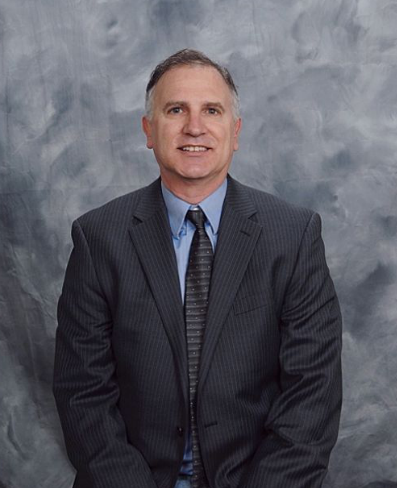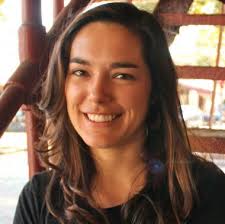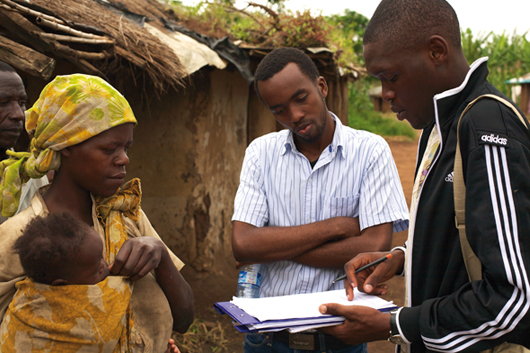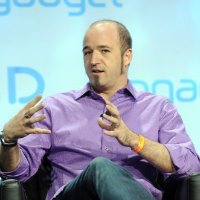
 This month there are two healthcare conferences that we will be attending here in Washington DC. One is the American Telehealth Association’s Fall forum and the other is The Interagency Committee on Disability Research (ICDR)’s Accessibility and Usability in Health Information Technology (HIT)...The ATA Fall Forum focuses on specific telemedicine topics and allows attendees to network and make lasting professional connections in a smaller-scaled environment. Tackle telemedicine, telehealth and mHealth industry issues right at the health care policy epicenter, Washington, DC.
This month there are two healthcare conferences that we will be attending here in Washington DC. One is the American Telehealth Association’s Fall forum and the other is The Interagency Committee on Disability Research (ICDR)’s Accessibility and Usability in Health Information Technology (HIT)...The ATA Fall Forum focuses on specific telemedicine topics and allows attendees to network and make lasting professional connections in a smaller-scaled environment. Tackle telemedicine, telehealth and mHealth industry issues right at the health care policy epicenter, Washington, DC.
 As we observe the 70th anniversary of the bombings of Hiroshima and Nagasaki, it may seem like the threat from nuclear weapons has receded. But it hasn’t; the threat is actually increasing steadily. This is difficult to face for many people, and this denial also means that we are not very well-prepared for nuclear and radiological events. I’ve been studying the effects of nuclear events – from detonations to accidents – for over 30 years. I’ve been involved in research, teaching and humanitarian efforts in multiple expeditions to Chernobyl- and Fukushima-contaminated areas. Now I am involved in the proposal for the formation of the Nuclear Global Health Workforce.
As we observe the 70th anniversary of the bombings of Hiroshima and Nagasaki, it may seem like the threat from nuclear weapons has receded. But it hasn’t; the threat is actually increasing steadily. This is difficult to face for many people, and this denial also means that we are not very well-prepared for nuclear and radiological events. I’ve been studying the effects of nuclear events – from detonations to accidents – for over 30 years. I’ve been involved in research, teaching and humanitarian efforts in multiple expeditions to Chernobyl- and Fukushima-contaminated areas. Now I am involved in the proposal for the formation of the Nuclear Global Health Workforce. Bacteria can become drug-resistant in two ways – resistance can be natural, meaning that the genes conferring resistance are already present in the bacterial chromosome, or they can be acquired through mutation or by picking up antibiotic-resistance genes from other microbes. It is now possible to use new DNA-sequencing technologies to take a closer look at how the antibiotic resistance can make some bacteria weaker or stronger. And in a new study, we found that – contrary to conventional wisdom around antibiotics – resistance can actually make some bacteria fitter and even more virulent.
Bacteria can become drug-resistant in two ways – resistance can be natural, meaning that the genes conferring resistance are already present in the bacterial chromosome, or they can be acquired through mutation or by picking up antibiotic-resistance genes from other microbes. It is now possible to use new DNA-sequencing technologies to take a closer look at how the antibiotic resistance can make some bacteria weaker or stronger. And in a new study, we found that – contrary to conventional wisdom around antibiotics – resistance can actually make some bacteria fitter and even more virulent. Systers is the world's largest email community of women in tech. First a little history, from Anita Borg.org: Systers was founded by in 1987 as an email mailing list for women in "systems." At last official count, the community has over 5,500 members from at least 60 countries. Women technologists of all ages and at any stage of their studies or careers are welcome to contact the current Systers-keeper, Rose Robinson. In this interview Rose Robinson talks with me about Systers' participation in the Open Source Day Codeathon taking place at the Grace Hopper Conference (GHC) in Houston, Texas this year—where attendence will hit record numbers. (You can still register!) Systers is one of a group of participating organizations during the codeathon...
Systers is the world's largest email community of women in tech. First a little history, from Anita Borg.org: Systers was founded by in 1987 as an email mailing list for women in "systems." At last official count, the community has over 5,500 members from at least 60 countries. Women technologists of all ages and at any stage of their studies or careers are welcome to contact the current Systers-keeper, Rose Robinson. In this interview Rose Robinson talks with me about Systers' participation in the Open Source Day Codeathon taking place at the Grace Hopper Conference (GHC) in Houston, Texas this year—where attendence will hit record numbers. (You can still register!) Systers is one of a group of participating organizations during the codeathon... Using open source methods within your own company--without offering up your resulting source code to the public--is called InnerSource. A report I wrote for O'Reilly Media titled Getting Started with InnerSource lays out some of the benefits of the open source model and how one company, PayPal, is carrying out both open source projects and InnerSource. Why would you want InnerSource? According to the report, your organization can grow and become more productive in several ways...
Using open source methods within your own company--without offering up your resulting source code to the public--is called InnerSource. A report I wrote for O'Reilly Media titled Getting Started with InnerSource lays out some of the benefits of the open source model and how one company, PayPal, is carrying out both open source projects and InnerSource. Why would you want InnerSource? According to the report, your organization can grow and become more productive in several ways... Tanzania’s health ministry is set to revisit the way it goes about collecting data to control malaria following new insights into the disease. The ministry is preparing to sign a strategic plan that will focus more on data collection at village and district level to intensify the national fight against malaria. This revision is needed because changing temperatures and growing travel habits among Tanzania’s people are spreading malaria-bearing mosquitoes, say policymakers.
Tanzania’s health ministry is set to revisit the way it goes about collecting data to control malaria following new insights into the disease. The ministry is preparing to sign a strategic plan that will focus more on data collection at village and district level to intensify the national fight against malaria. This revision is needed because changing temperatures and growing travel habits among Tanzania’s people are spreading malaria-bearing mosquitoes, say policymakers. The Free Software Foundation was founded in 1985. To paint a picture of what computing was like back then, the Amiga 1000 was released, C++ was becoming a dominant language, Aldus PageMaker was announced, and networking was just starting to grow. Oh, and that year Careless Whisper by Wham! was a major hit. Things have changed a lot in 30 years. Back in 1985 the FSF was primarily focused on building free pieces of software that were primarily useful to nerdy computer people. These days we have software, services, social networks, and more to consider...
The Free Software Foundation was founded in 1985. To paint a picture of what computing was like back then, the Amiga 1000 was released, C++ was becoming a dominant language, Aldus PageMaker was announced, and networking was just starting to grow. Oh, and that year Careless Whisper by Wham! was a major hit. Things have changed a lot in 30 years. Back in 1985 the FSF was primarily focused on building free pieces of software that were primarily useful to nerdy computer people. These days we have software, services, social networks, and more to consider... OpenFDA is releasing information on medical devices that could spur innovation and advance scientific research. OpenFDA’s Application Programming Interface (API) expands the previous openFDA resources about medical device-related adverse events and recalls by incorporating information from the total medical device product life cycle. This includes current data on device classification (6000 records), 24,000 registrations of device companies and establishments, and the companies’ listings of over 100,000 devices. Data since 1976 on 30,000 device approvals and approval supplements, and 141,000 device clearance decisions (510(k) and de novo types) are now on openFDA.
OpenFDA is releasing information on medical devices that could spur innovation and advance scientific research. OpenFDA’s Application Programming Interface (API) expands the previous openFDA resources about medical device-related adverse events and recalls by incorporating information from the total medical device product life cycle. This includes current data on device classification (6000 records), 24,000 registrations of device companies and establishments, and the companies’ listings of over 100,000 devices. Data since 1976 on 30,000 device approvals and approval supplements, and 141,000 device clearance decisions (510(k) and de novo types) are now on openFDA.